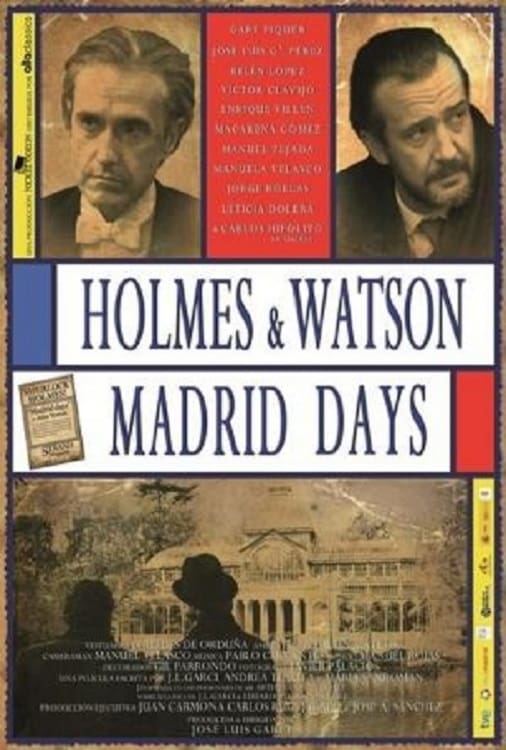
Film based on the characters of the English writer Arthur Conan Doyle. It tells a hypothetical meeting in Madrid between the legendary detective Sherlock Holmes and Jack the Ripper.
12 Dec Holmes & Watson. Madrid Days (2012)
Fight Clubs
Holmes, the literary creation, is important in the development of film, yet films that use his character do so without mining the cinematic possibilities. Now here is a film that does just that. It is by a famous Spanish literary figure, who has also made many films (alas, so far unknown to me). He hosted a TeeVee show on the history of film, emphasising the literary vision.
This story has no action whatever; the murderer is not caught. Instead it is very conversational, a meditation on logic, love, progress and power. This is clearly made for Spanish intellectuals in the manner of Ruiz, with the observations nearly all rooted in very specific Spanish romantic notions that (he says) were lost when Spain became a modern country.
But special souls can still touch this, with the major arc being Sherlock’s emotional awakening. Watson is still his biographer and presumably the author of what we see. He clearly is the avatar of the filmmaker and there are some hints that Holmes is his fictional alter ego. (Holmes is continually puzzled by how familiar everything seems.) In this version, Watson is handsome, master of 1,000 campaigns as he says. He is married to a woman so perfect, so sexy, alluring and constant that she could only exist in fiction.
Watson (and Holmes) go to Madrid, in part to investigate a terrible crime, but more important is Holmes’ developing affair with Irene Adler, an opera singer with a different composition of enticements, more exotic and in control of her sex. Watson collaborates with the Spanish detective with the name (and character?) of the filmmaker’s long time collaborator. Watson cannot seem to remember the name correctly.
While in Spain, Watson falls in love with another impossibly idealised beauty, and the romances of Holmes and Watson overlap in terms of urge. His passions seem boundless and Spain almost runs away with his soul, but he controls himself, solves the mystery and returns to his wife with a recipe for a dish that is described as if it created heaven. (His character, Holmes when home learns to channel his desires as well; Irene follows him back.)
All of this is remarkably well presented, a lot of deep conversation that in another construction would be remarkably uncinematic. But all that is just the detectives; we have a similarly diffuse criminal plot that surrounds them. This parallels the love story in how it is presented: lots of meetings, dinners and talk talk talk. But the talk (criminal and love) is almost never about mundane things, but about the pulls on society that parallel those of desire on individuals.
So we have many parallels here: parallel detectives (Holmes and Watson), parallel loves (home and adventure), parallel urges (love and power), even parallel reporters; Watson is accompanied by a Spanish reporter who has his own love. In the only symbolism that is heavy, she is bespectacled. And each of these parallels is generatively nested, as if you imagined the imaginary mind of Holmes would have constructed.
Posted in 2015
Ted’s Evaluation — 3 of 3: Worth watching.


No Comments